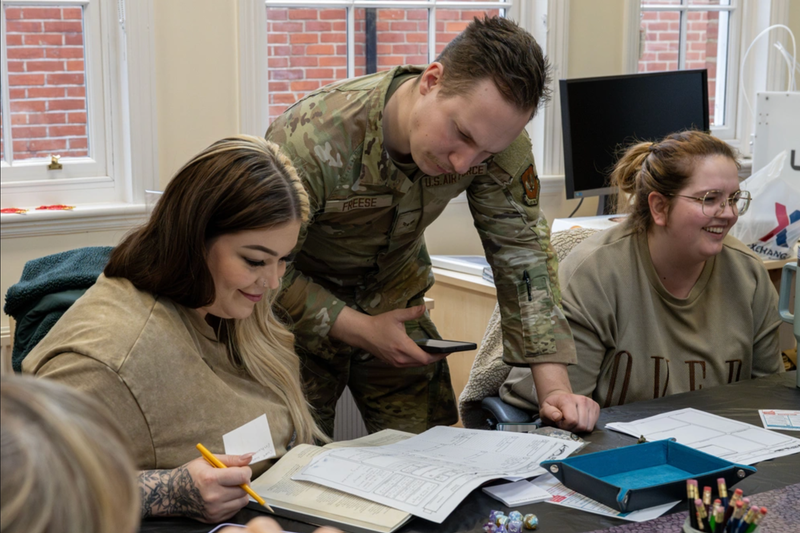
Nerd Alert! Just kidding, Dungeons and Dragons has emerged from your childhood basement or backroom at your local comic book shop and become something of a cultural phenomena in recent years. Now U.S. military service members are talking about how the game has positively influenced them on the job.
In reality D&D has always been around the military, especially when the only items really required to play it are pencil, paper, and dice which makes it available to sailors out at sea or soldiers deployed to a remote forward operating base.
"It’s that constant being on your toes and working towards the next step that’s critical," explained Airman 1st Class Brock Duckworth who is assigned to the 48th Civil Engineer Squadron as a geospatial technician. "Being put in this state of ‘you don’t know and you need to figure it out and get out of it alive’ is a good hypothetical for real life events and putting a fantasy twist on it makes it feel a lot more digestible."
For the uninitiated, Dungeons and Dragons can be thought of as an elaborate board game in which dice rolls add an element of chance to outcomes. Players create characters that have underlying statistics and battle monsters which also have statistics, so in this sense it is not unlike other forms of game design to include video games. However, the difference is that unlike in a video game, Dungeons and Dragons is a collaborative story telling game.
A group of Airmen recently described their own D&D games and how they positively impacted their job to a Department of Defense media outlet.
"I’ve watched players grow in the game, then apply those same skills at work,” said Tech. Sgt. Trenton Miclette of the 48th Maintenance Group "Seeing them use critical thinking and problem-solving in real life is amazing."
The game challenges players to make quick on the spot decisions, but also weigh risk and consider outcomes. It also encourages creative problem solving.
"Tabletop games aren’t just a game, they build real world problem-solving skills," said Miclette.
